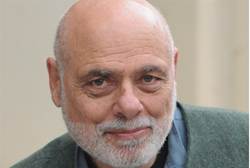
Juvenile Diabetes Drug Passes a Phase III Clinical Trial
A new treatment for Type I (juvenile) diabetes invented by Israeli scientist Professor Irun Cohen has met its first and secondary goals in a Phase III clinical trial conducted by the Andromedia Biotech firm. Recruitment of participants has started for a second, validation trial hoping to replicate the results.
The drug, DiaPep277, created by Cohen and his team at the Weizmann Institute of Science in Rehovot, was tested on 457 patients aged 16-45 in 40 medical centers throughout Europe, Israel and South Africa. The research was supported by the Laszlo N. Tauber Family Foundation.
Patients received a subcutaneous injection once every three months for a period of two years, while a control group received a placebo injection the same way. Both groups also received insulin as needed to stabilize their glucose levels.
During the trial, the ability of the patients’ pancreas to secrete insulin was tested. An initial analysis of the results indicated that patients treated with the drug for a year or more exhibited significantly higher pancreatic function than those in the control group. No significant differences were found with regard to side effects between the patient and control groups.
The peptide, which contains 24 amino acids, is derived from the sequence of the human heat shock protein 60 (Hsp60). It modulates the immune system to prevent the destruction of the pancreatic cells that secrete insulin and preserve their natural function.
Andromeda Biotech, is a second tier subsidiary of Clal Industries, which belongs to the IDB group. Two years ago, the company gained FDA approval for the development plan for DiaPep277, which is set to become the company’s flagship product.
If the medication succeeds and makes it all the way to market, it will face virtually no competition, being the first of its kind to at least slow down, if not halt the march of juvenile diabetes.
In its statement, Andromeda officials said much the same, noting cautiously that DiaPep277 may slow the deterioration of the diseased tissue, while improving metabolic control, reducing a patient’s daily insulin requirement and decreasing the complications of Type I diabetes.
The company is currently recruiting participants for a second Phase III clinical trial of 450 subjects in 120 medical centers in Israel, Europe, the U.S. and South America in an effort to replicate the results. Participant recruitment for the validation study is set to end by June 2012.


